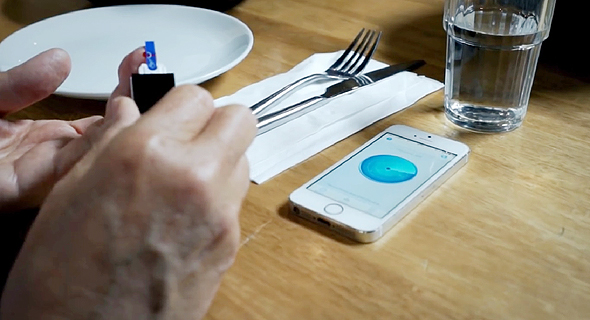Indian Diabetes Care Provider Apollo Clinic Signs Agreement with Diabetes Monitoring Startup GlucoMe
Israel-based GlucoMe’s wireless monitor will be integrated into Apollo Clinic’s new nationwide diabetes home care program
For daily updates, subscribe to our newsletter by clicking here.
Established in 2013, GlucoMe develops and markets wireless blood glucose and insulin pen monitors that automatically record blood glucose measurements and insulin intakes and transfers them to the patient’s smartphone. The patient’s personalized profile also connects in real-time to a digital service that includes a cloud-based diabetes management software for health professionals. The company’s products received a CE mark (European approval) and GlucoMe expects to receive clearance from the U.S. Food and Drug Administration in 2018.
 Glucome. Photo: Glucome
Glucome. Photo: Glucome
As per the agreement, Apollo Sugar, which operates 55 clinics across India, has begun integrating GlucoMe’s system into its recently launched home care program. As part of the program, patients will receive GlucoMe’s glucose monitor, enabling real-time and continuous communication between patients and Apollo Sugar’s medical staff.
- Enema Startup Motus GI Files for $28.8 Million Nasdaq IPO
- Bonus Biogroup Says First Lab-Grown Leg Bone Transplanted in Patient
- Predictive Care Startup CLEW Medical Raises $10.5 Million
India has a population of over 1.2 billion, according to the World Bank. According to the World Health Organization, an estimated 8.7% of Indian people between the ages of 20 and 70 years are diabetic, driven by a combination of factors, including increasing urbanization and sedentary lifestyles, unhealthy diets, tobacco use, and the increasing life expectancy in the country.
"Diabetes is an enormous health problem challenging India's population and economy,” said Apollo Sugar Clinics CEO Gagan Bhalla in a statement. “Our goal in treating the diabetes pandemic is to achieve efficient management of the condition to result in significant improvement in overall patient health and reduce diabetes complications."



